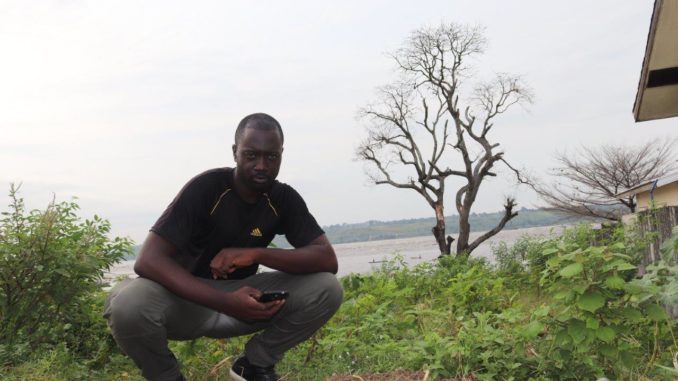
Ponta Negra/Pointe Noire
Our flight time to Pointe-Noire from Libreville was around one hour twenty minutes. The Republic of Congo would be the last country on the trip and in as much as I was happy I was coming to the end of the trip, I was still bothered by thoughts of uncertainty as to whether the immigration officials at Agostinho-Neto International Airport would give me a smooth welcome to the country or they would want to take advantage of me as one would expect, based on a few stories I heard from people when I went to secure my visa at their embassy.
A few minutes before the plane’s final approach, I looked out of the window to notice a landscape that looked like the tip of an isosceles triangle into the ocean. I wondered if that was the reason why the city is called Pointe-Noire. While thinking of this and other things I would expect on ground when I arrive, the pilot made the last announcement before landing. The name was actually given to the place by some Portuguese explorers who arrived there around the late 1400’s noticed a block of black rocks. The called it Ponta Negra which translates to Pointe Noire in French or Black Point in English. A signing of treaty with the French made it a French colony around 1883 and hence the French version of the name was preferred to the Portuguese Ponta Negra.
On ground at the airport, the immigration process was very fast for most of the passengers until it was my turn to be attended to on the queue. ‘Ton passeporte monsieur!’ he demanded and seeing it was a Nigerian Passport I had on me, I noticed an expression of ‘let’s see what we can make from this Nigerian’ look on his face. He demanded for my ‘Certificat d’herergement’ which is like a letter of invitation authorized by the immigration which I am supposed to have before arrival and present when I arrive. I was earlier informed at the Congolese Embassy in Abuja that this document is a prerequisite for entry into the country for Nigerian visitors, except when one is visiting for tourism in which case a hotel reservation which is signed and stamped by a hotel manager anywhere in the country would suffice. Good a thing, the hotel I had booked Hotel Scaimba at my request had given me all these and I had mistakenly packed it in my bag, instead of having it with the other documents I had with me.
In the process of trying to explain to the immigration officer who was visibly convinced that he was going extort money from me that evening that my hotel reservation was in my bag-pack which I had checked into due to the small size of the aircraft. During out conversation, a more senior immigration officer came and I explained to him that I have a stamped hotel reservation in my bag and on sighting it, he asked the initial immigration officer to allow me go. With looks of disappointment, he asked me to give him some money to get his dinner, a request I declined, telling him that I do not have enough. This should be the second time an immigration officer would be asking me to pay or give him something in an international airport. The first of this situation was in Cotonou in Benin Republic. There were also stories of people being maltreated and deported for not having this document.
Leaving the airport terminal building, I went straight to buy a phone sim card from the a few vendors walking around the airport. I also bought internet subscription so I could have internet to navigate and also find a place where I could sleep for the night, where I could rest before continuing my visit to the city the next day and then continue my journey to Brazzaville from where I would take my final leave back to Lagos.
Not wanting to spend too much on a hotel that evening, I decided to find a cheap hotel around the park where I could get vehicles going to Brazzaville. I knew very well that even though the transport companies who go to Brazzaville does not have a place for passengers to sleep, there would be affordable accommodations where travelers could spend a token to sleep before continuing their journey the next day. I was referred to Tie-tie, a place in the town where there were many transport companies going to Brazzaville and other cities within and outside the country. I paid 1000 CFA for a taxi from the airport and I got a hotel for 5000 CFA. Got to the hotel around 8pm and slept off wondering if I should explore Pointe Noire the next day or I should just go to Brazzaville.
The next morning, I was still confused whether I would still want to tour Pointe Noire or just continue to Brazzaville. I personally love traveling by road but if I should go by this, I would have to take the first bus the next morning to leave to Brazzaville. However, if I decide to stay back to explore Pointe-Noire, I would have to fly to Brazzaville. Staying back would also make it possible to meet an old friend Brad, a Facebook friend who even though I had not met him in person before that time, had been a friend who helped me in my French and Portuguese studies.
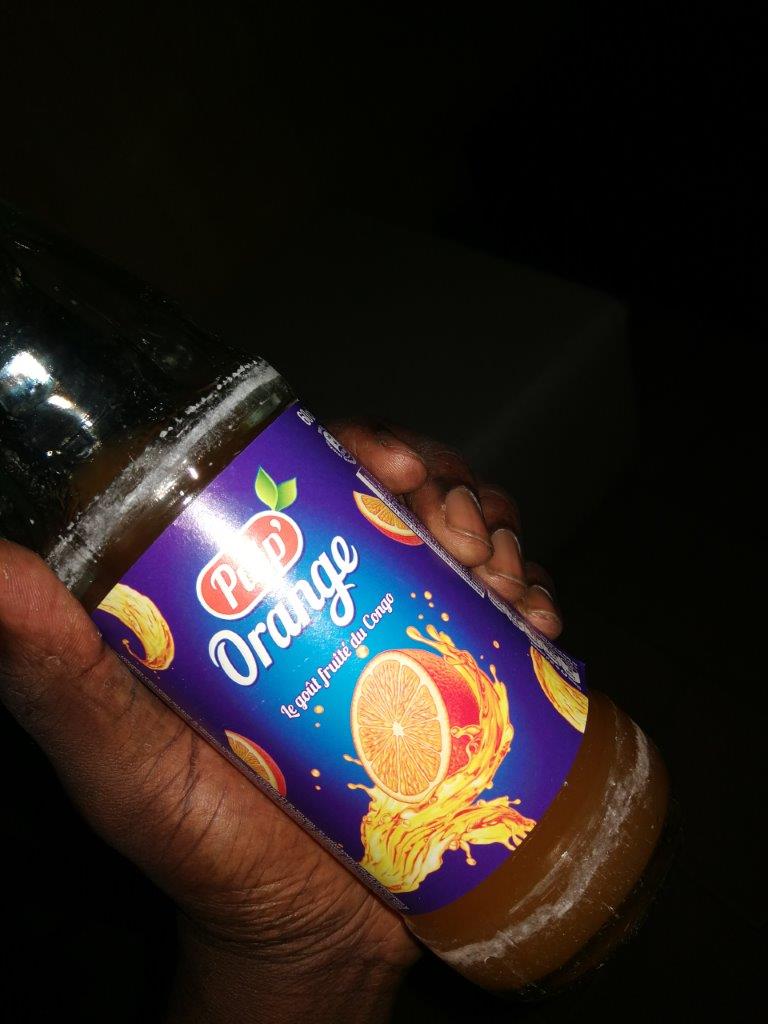
I needed a bottle of this Orange drink to cool off. 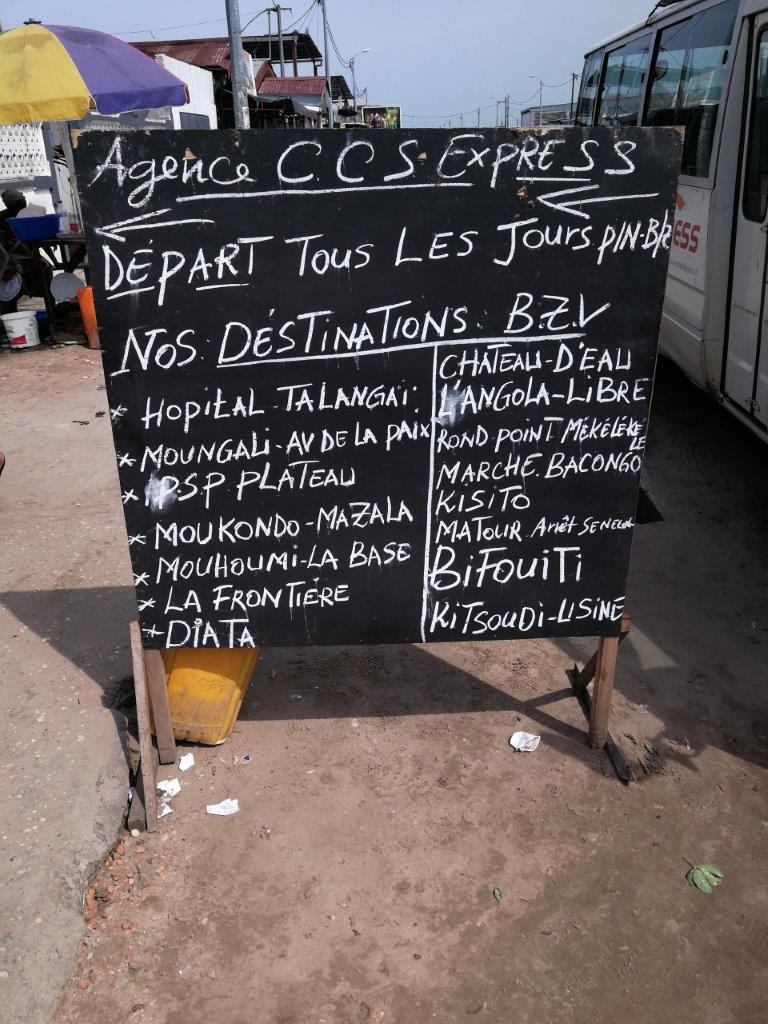
Some of the destinations from the bus parks in Tie Tie. 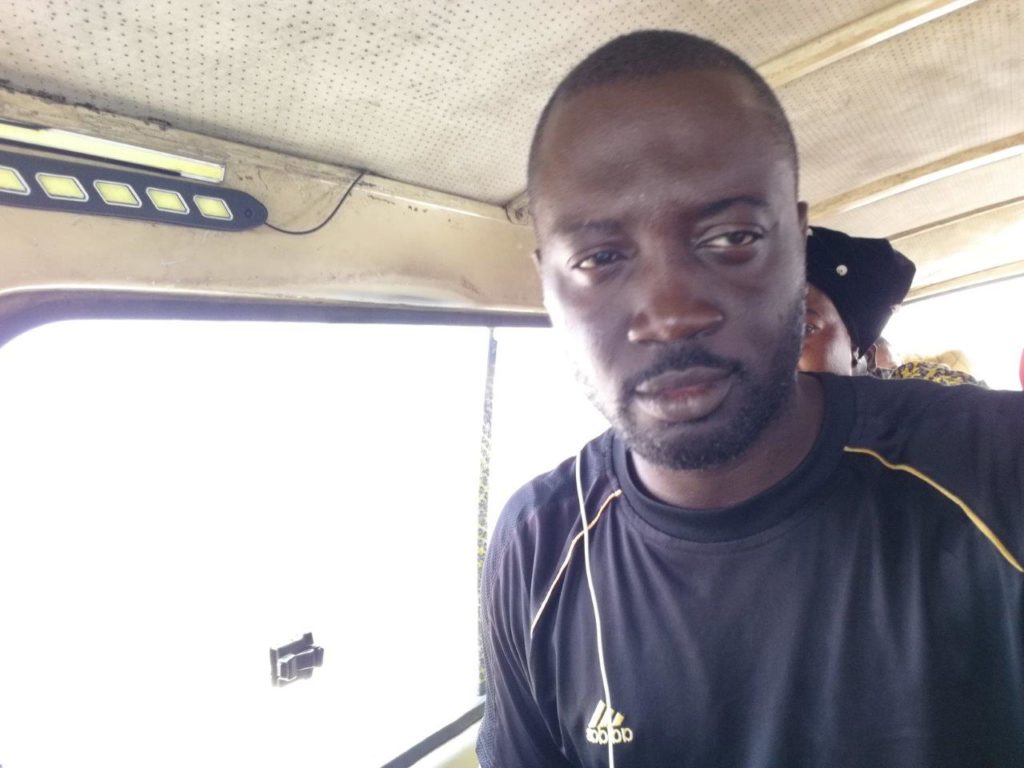
In a public bus 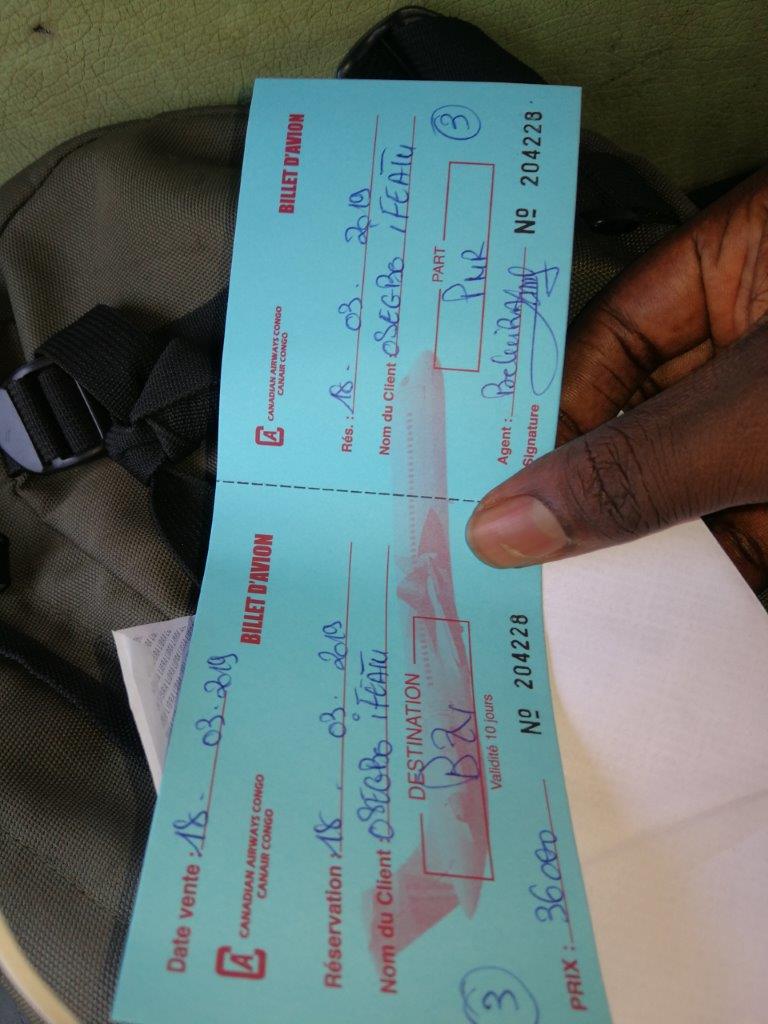
The hand written ticket 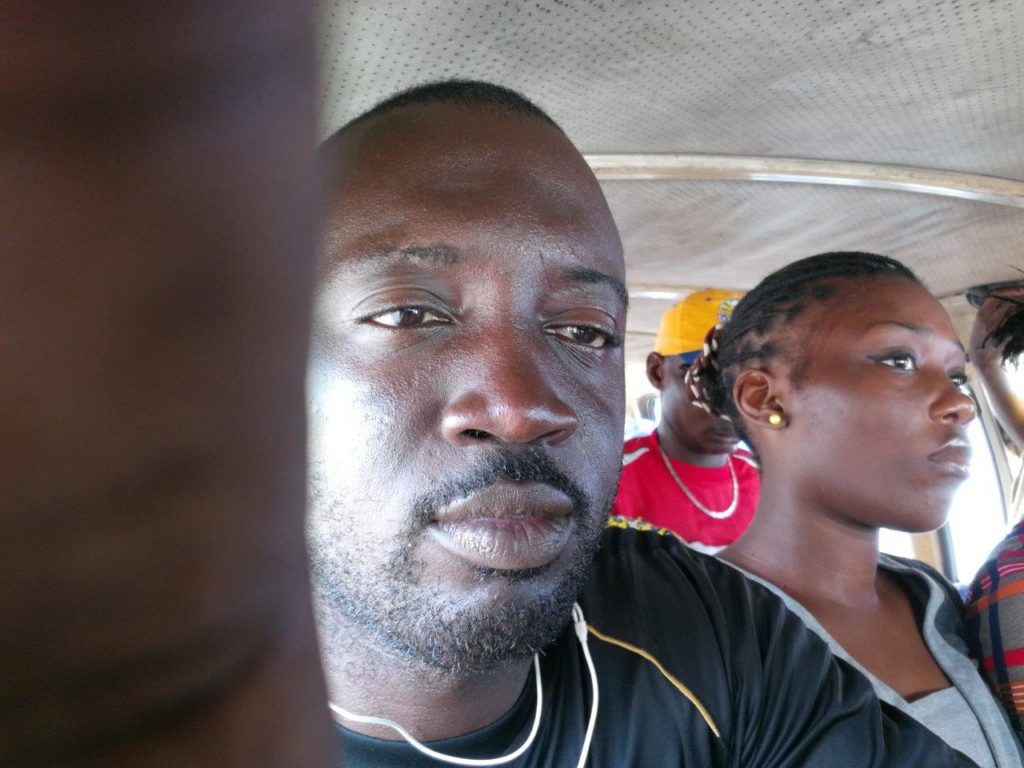
In a different bus. I secretly took this picture. 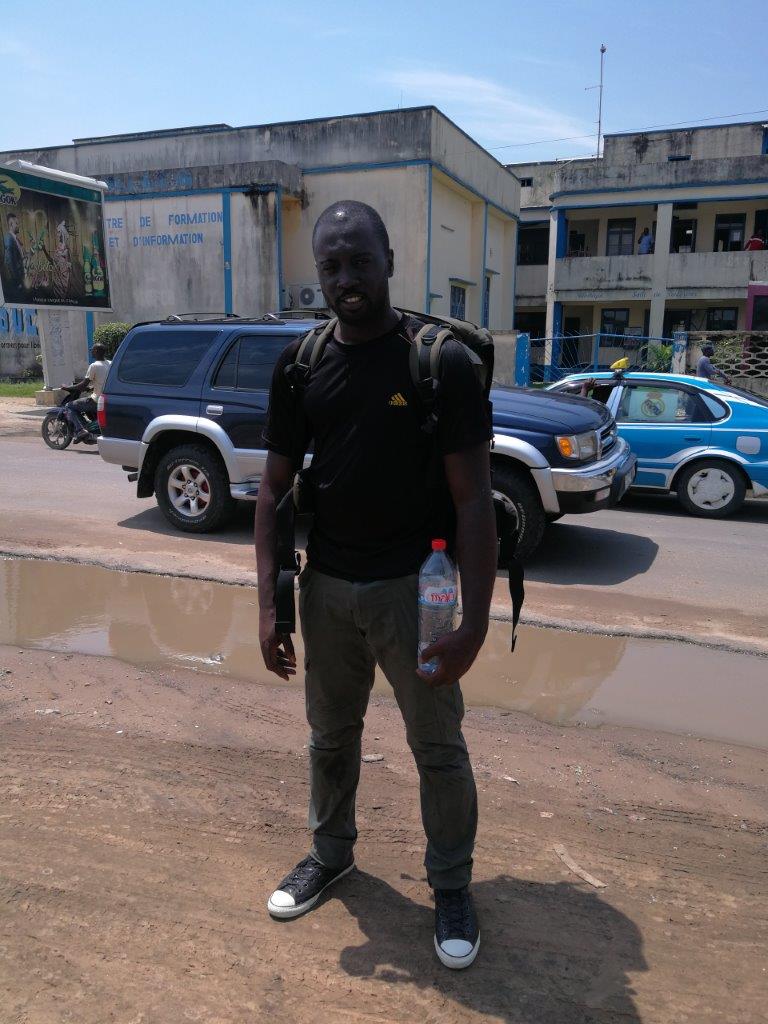
Somewhere in town 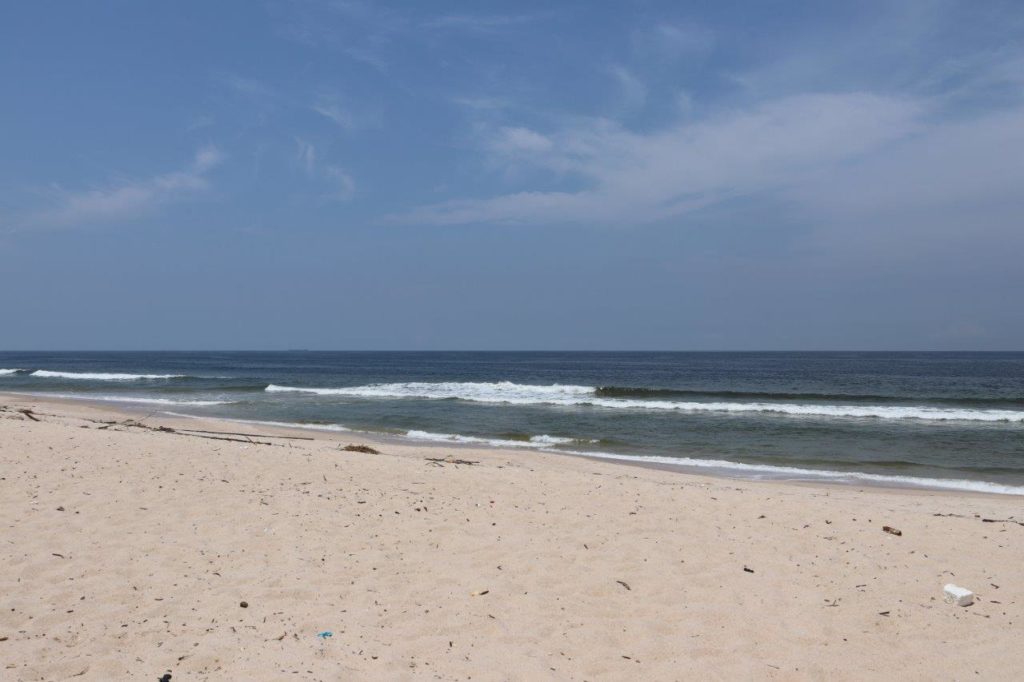
The beach at Pointe Noire. 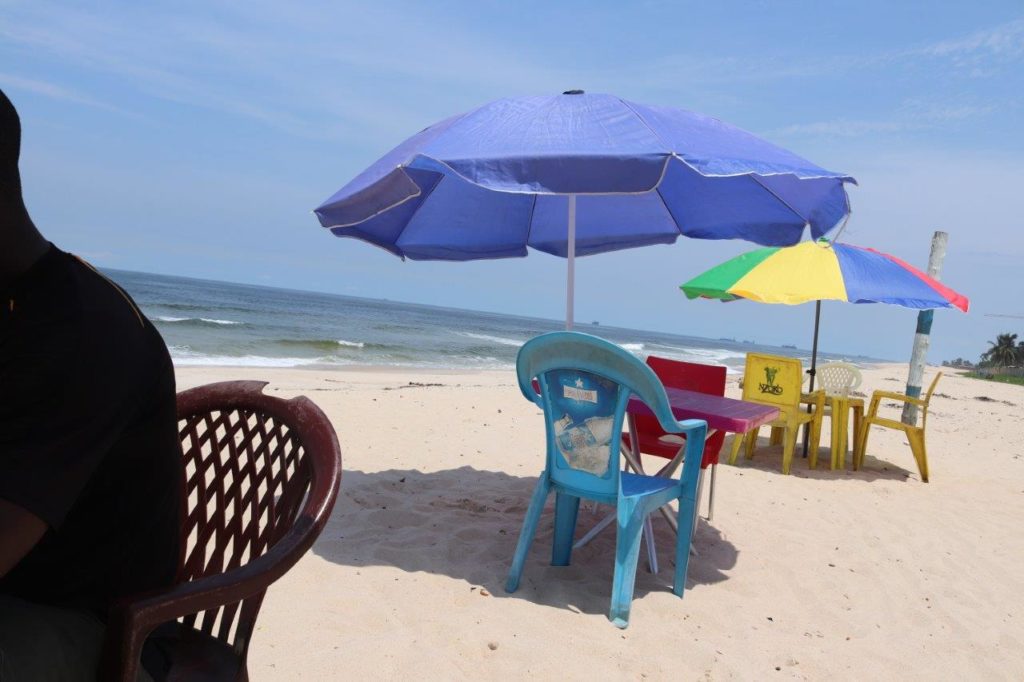
The beach at Pointe Noire. 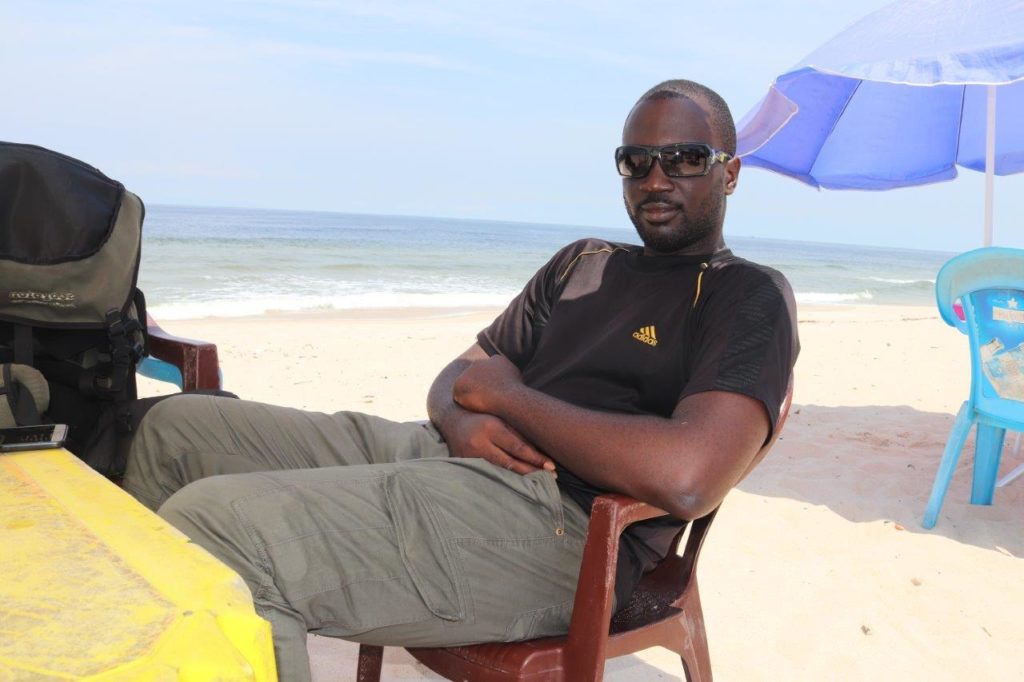
Me at the beach at Pointe Noire. 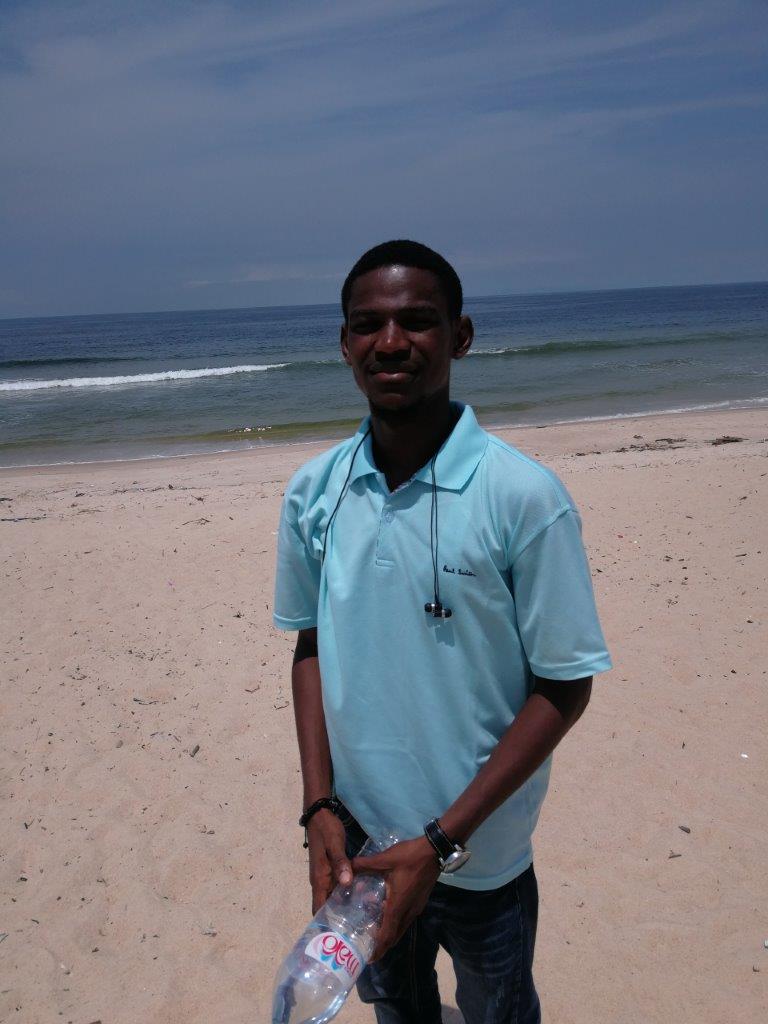
Brad 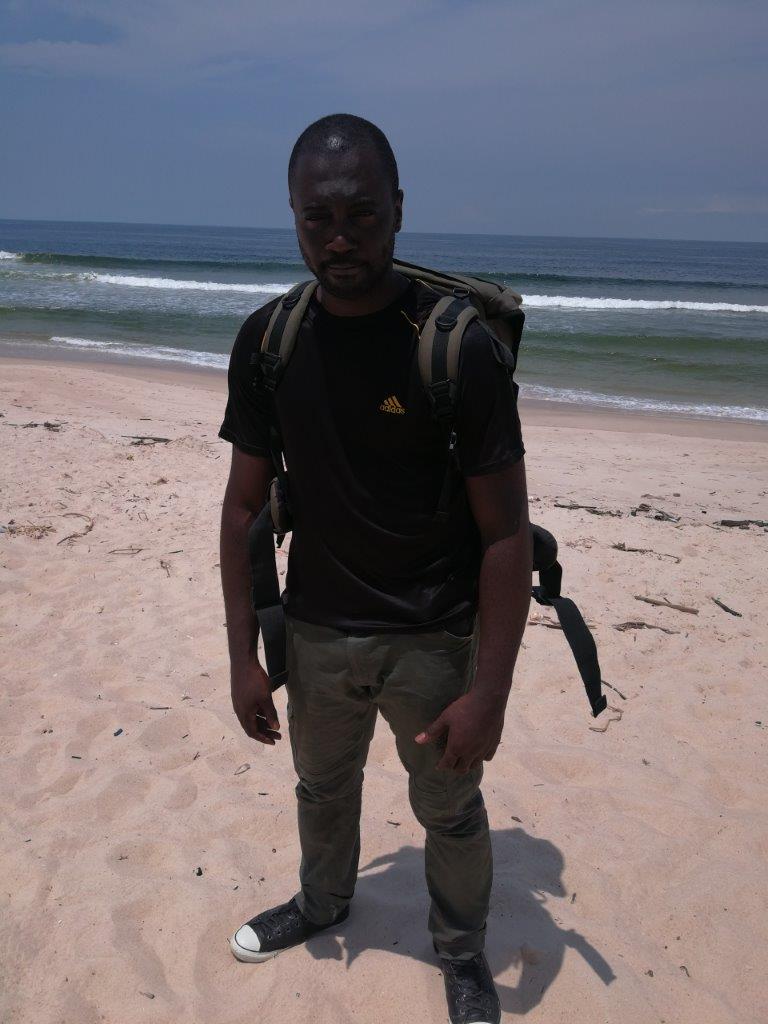
Myself 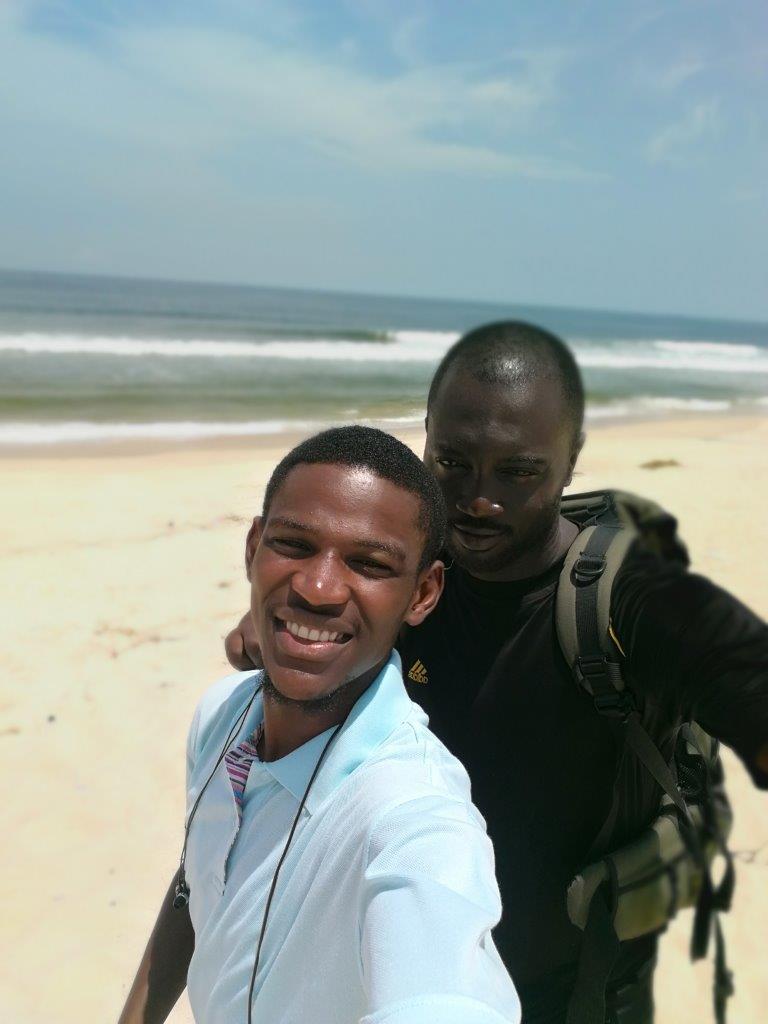
Brad and myself
So first, I visited the airport to see the possibility of and to purchase my tickets to Brazzaville if it was available and affordable. I was fortunate to get something for 35000 CFA on Canadian Airways Congo – the tickets were not electronic, it was handwritten and that would be the first time I would fly with a handwritten ticket. With that done, it was time to visit the town for tour and find breakfast as well. My breakfast was fried yam and fish with some sauce prepared with vegetable oil and onions – which looked like the Senegalese Yasa but I did not ask of the local name. I visited a nearby market known as Marche Tchystere. I could not walk around the market due to the fact it was rainy season and that most places at the market were flooded. I also considered visiting the Pointe Noire Museum but I was told it would take a long time to get there. The other option was to take a private taxi and I was told that would cost me nearly 5000 CFA, an amount I was not sure I had at that time to spend.
I rather visited the part of the town where Brad’s school was. He joined me to the beach and to a few places I took pictures in the town before continuing to the airport. I would be flying with Canadian Congo Airways to Brazzaville. The realities on ground was quite different from what the name of the company suggested. The plane tickets were handwritten unlike the electronic tickets used everywhere. At the airport also, we were not given boarding passes. We boarded the plane with the hand written tickets. The flight time from Pointe Noire to Maya Maya was around one hour.
Brazzaville
On arrival at Maya Maya, I was happy and relieved there was not going to be any immigration formalities since I was flying within the same country. I was however constrained by the fact that I had less than 15000 CFA on me till I arrived home at Lagos. Knowing fully well that my funds are limited, I did everything possible to eliminate excessive and unnecessary expenses. I had overspent my budget due to the several hurdles I encountered during the trip all the way from Lagos, till Equatorial Guinea, Gabon and now Congo. My plan was just to see a few places in Brazzaville, visit the River Congo that borders Congo Brazzaville and Kinshasa in The Democratic Republic of Congo before I leave back to Lagos.
Before I left Lagos, I had wanted to know why the airport was named Maya Maya. I initially thought it was named after the popular American poet Maya Angelou. However, in Brazzaville, I asked someone who explained the airport is named after the part of Brazzaville where it was built which is Maya Maya.
Leaving the airport, I had to apply the same principle that had always helped me get the cheapest place in town to sleep which was to find a place close to a motor park or Les Agence de Voyages. I was able to get a relatively cheap one for 5000 CFA that evening. I rested for a while then I took a walk around the markets and the city to see what it was like.
The markets were just like most traditional African markets. People were hawking all sorts of goods ranging from fairly used cloths to different food stuffs. One will have to wrangle his way through the very busy market to get from one point to another. Most of the fruits at the market were those that I am used to back home. However, one of the vegetables that stood out of for me was the cassava leaves. Cassava leaves is a treasured vegetable in Congo Brazzaville. I noticed several people were either buying and selling it. Back home in Nigeria, it is something meant to be eaten by animals but here things are different. Back home in my Igboland, it was said that during the Biafra Nigeria civil war, things were so bad in the Biafran side that people who had no food to eat were left with no option to eat these cassava leaves as an alternative source of vitamins and nourishment.
Returning from the market, I went to an ATM machine to make a withdrawal so I could make a few purchase for dinner before returning to my hotel room. Arriving at the UBA machine, I noticed that several customers of the bank were having issues with the machine due to the fact that instructions were written in French but said in English – an error I think happened because the machines must have been shipped from Nigeria and they had failed to do due diligence of reconfiguring both display language and speech to French.
Walking back to the hotel, I observed a very loud video rental and a local movie was showing there. Even though the language of the movie was Lingala, a local language spoken in the region, I could hear some very familiar words like ‘Igwe’, ‘mba’ etc. which has meaning in my native Igbo language. On getting closer, I noticed it was a Nollywood movie that was dubbed in Lingala. Sight of this left me very happy and proud for what Nollywood is doing especially in Africa. In Brazzaville for instance, the movie provides entertainment and a good way for people to relax. It also a source of employment to the people who rent it and those involved in the dubbing as well.
I retired to my hotel that evening and noticed another thing about the country which is that just like Nigeria in that they are facing lots of electricity problems. Fortunately, there was a very noisy generator that provided power until I slept off till the next morning. As sad as the power issue will sound, the country has a very high hydroelectricity potential and is capable of generating enough power to power the whole of sub-Saharan Africa from the close by Congo River.
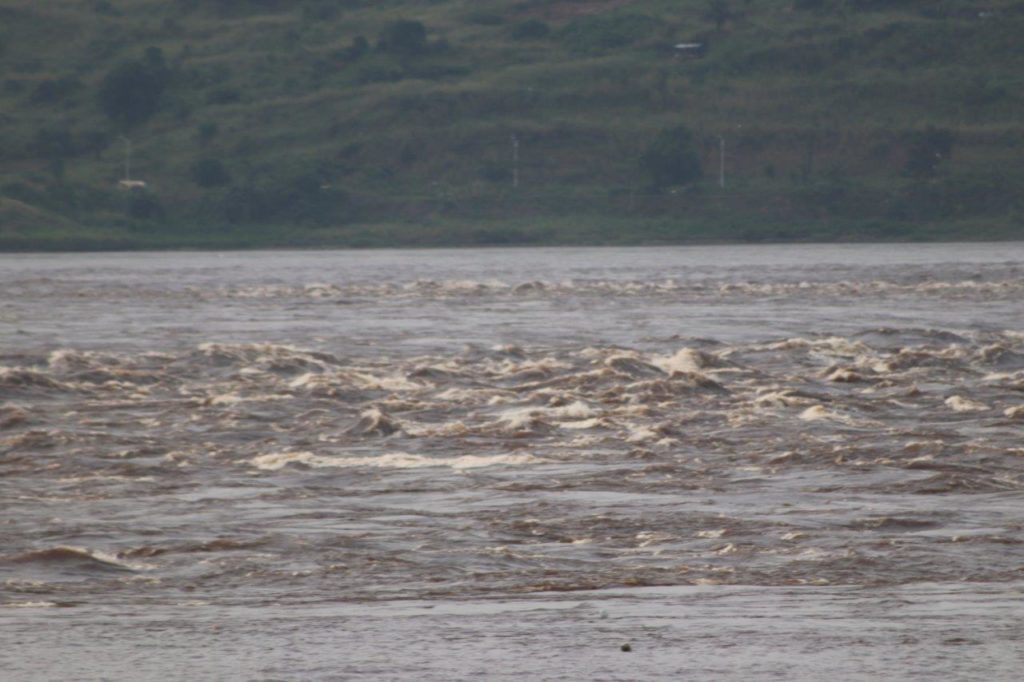
The River Congo. The other side is Kinshasa in DRC 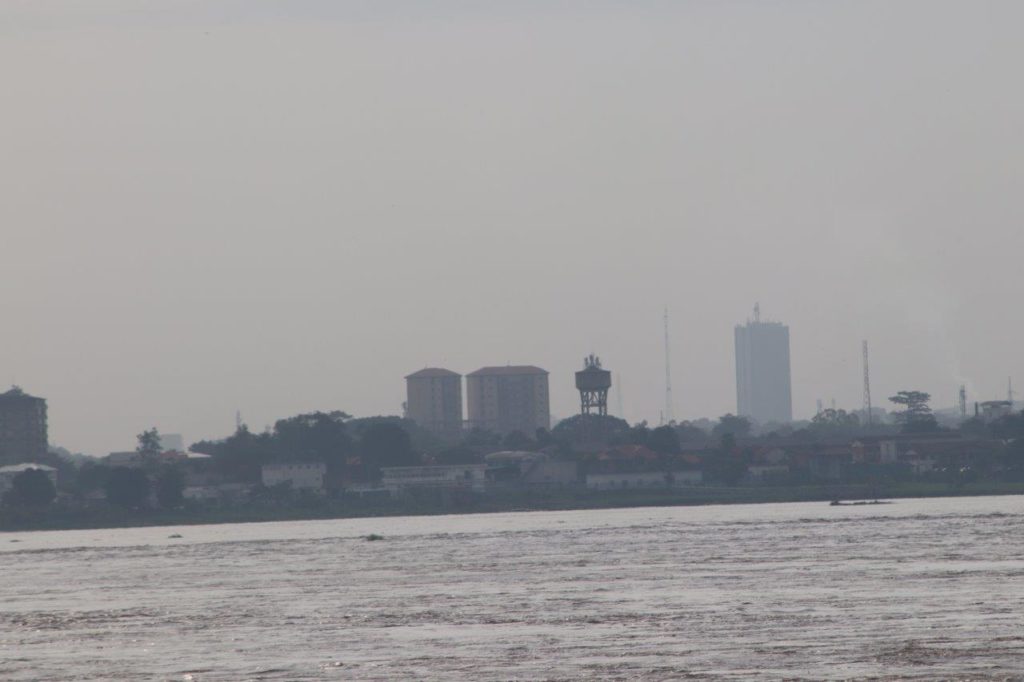
The River Congo. The other side is Kinshasa in DRC The River Congo. The other side is Kinshasa in DRC The River Congo. The other side is Kinshasa in DRC 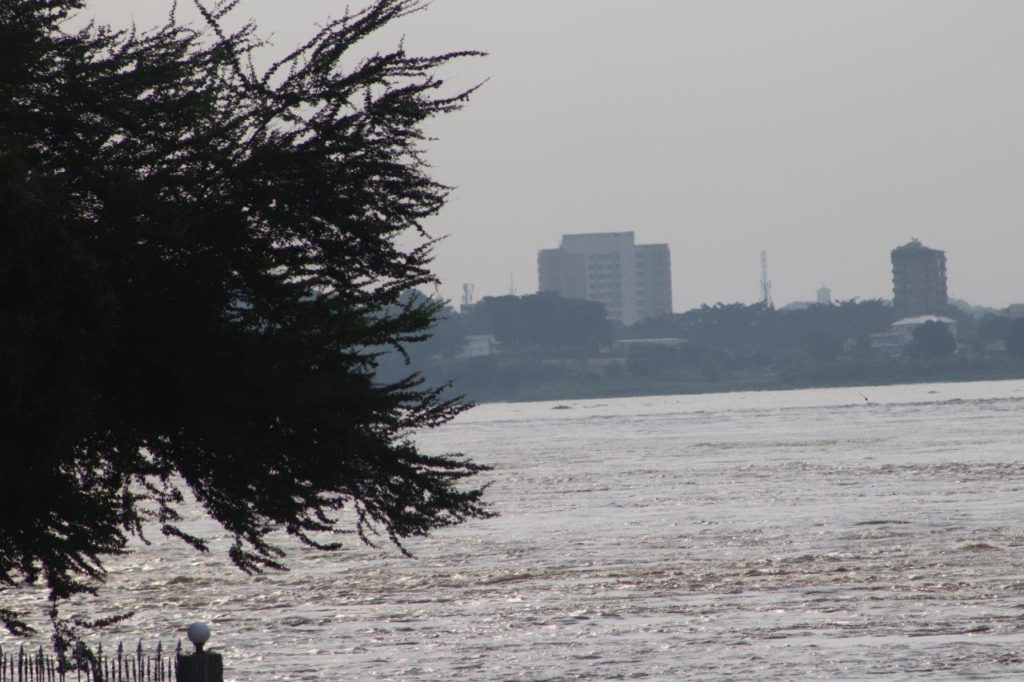
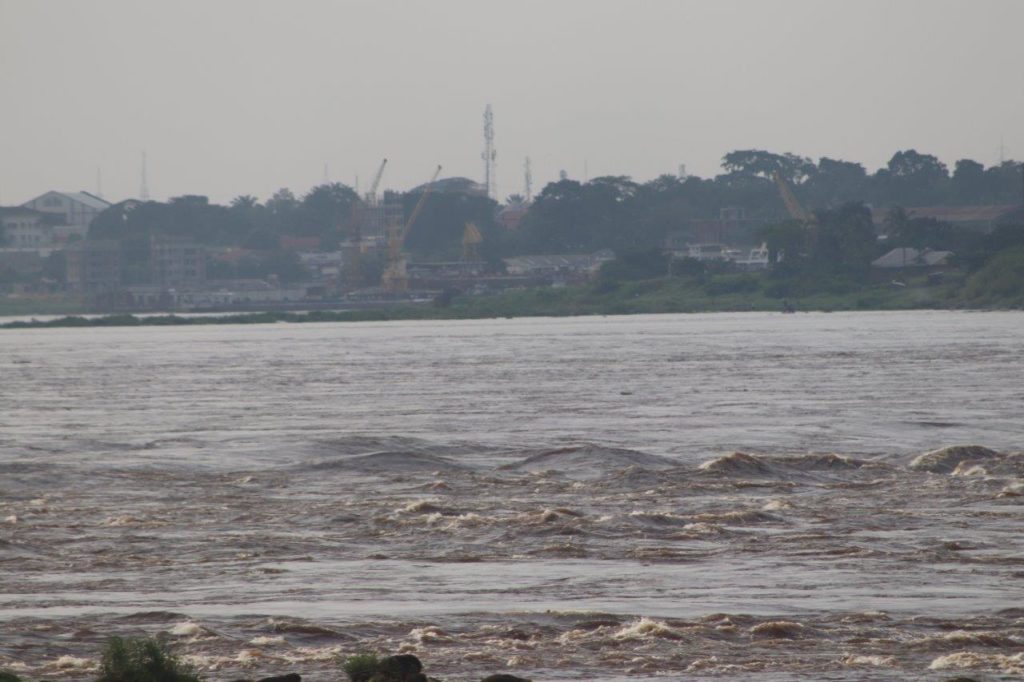
The River Congo. The other side is Kinshasa in DRC 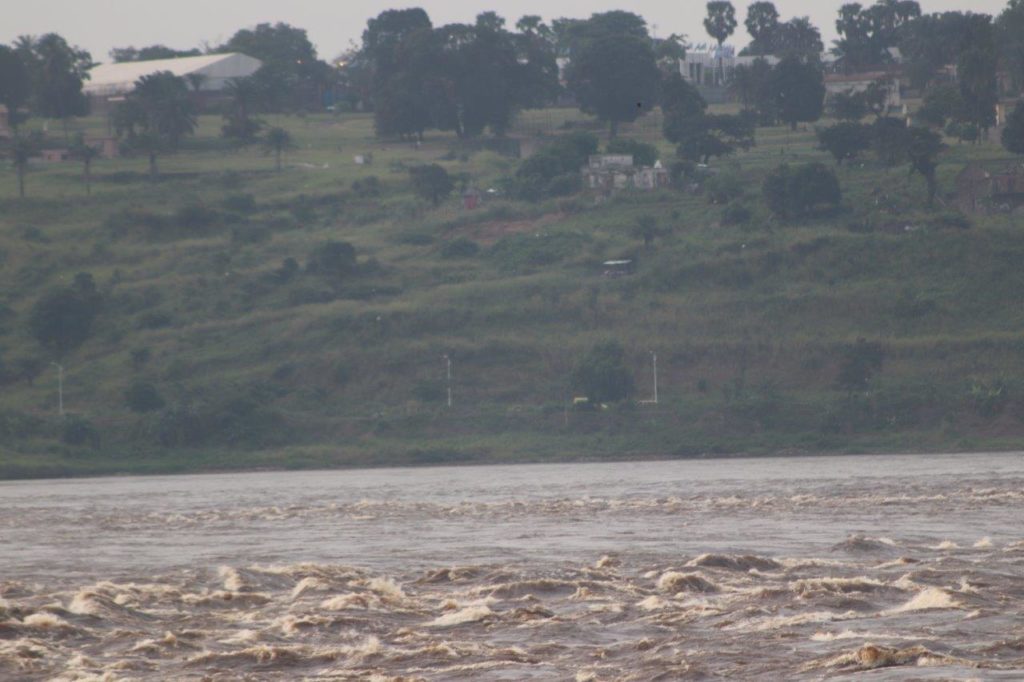
The River Congo. The other side is Kinshasa in DRC 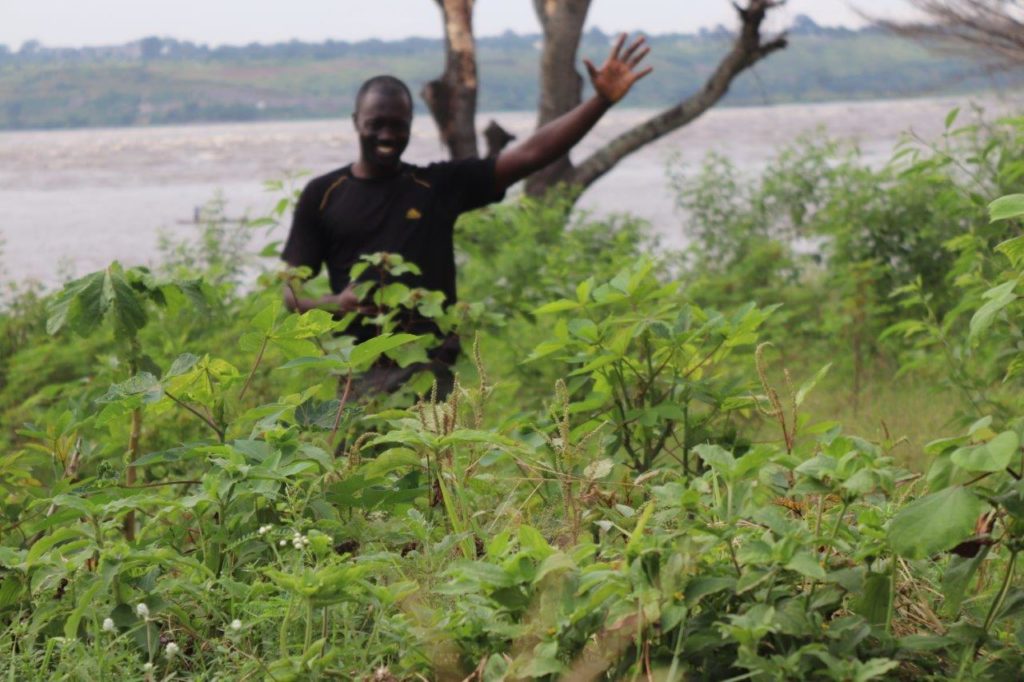
Pictures at the bank of River Congo 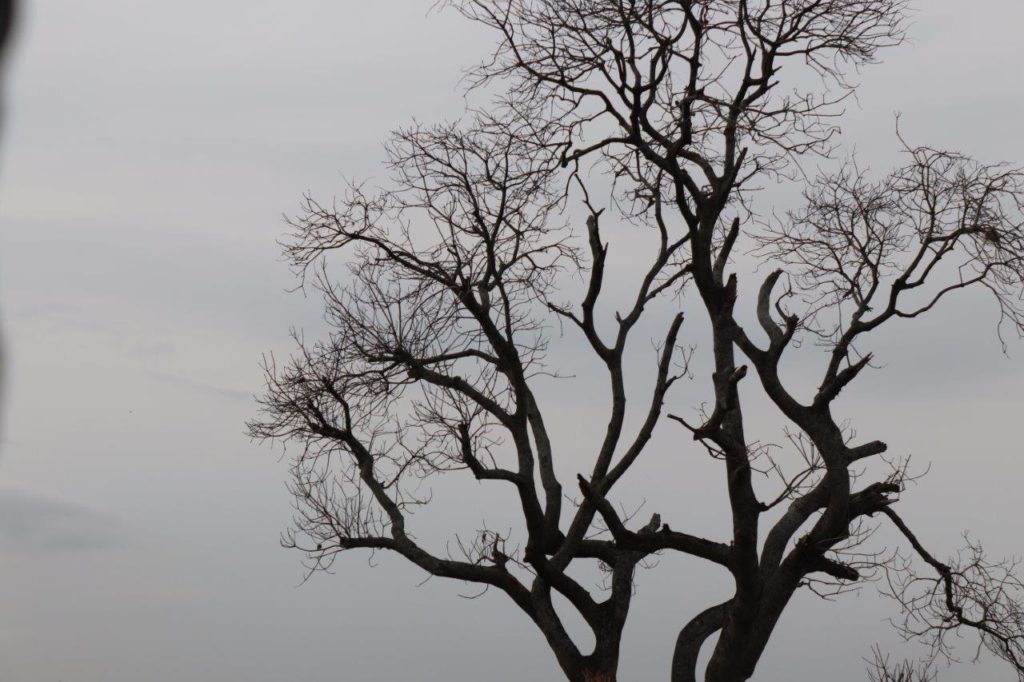
Pictures at the bank of River Congo 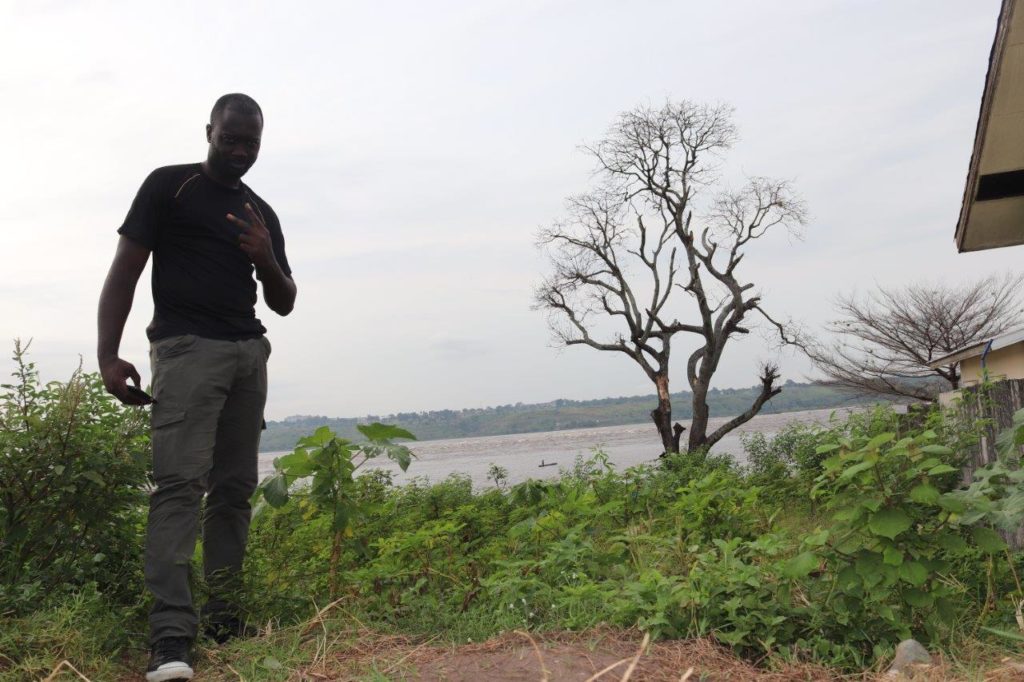
Pictures at the bank of River Congo 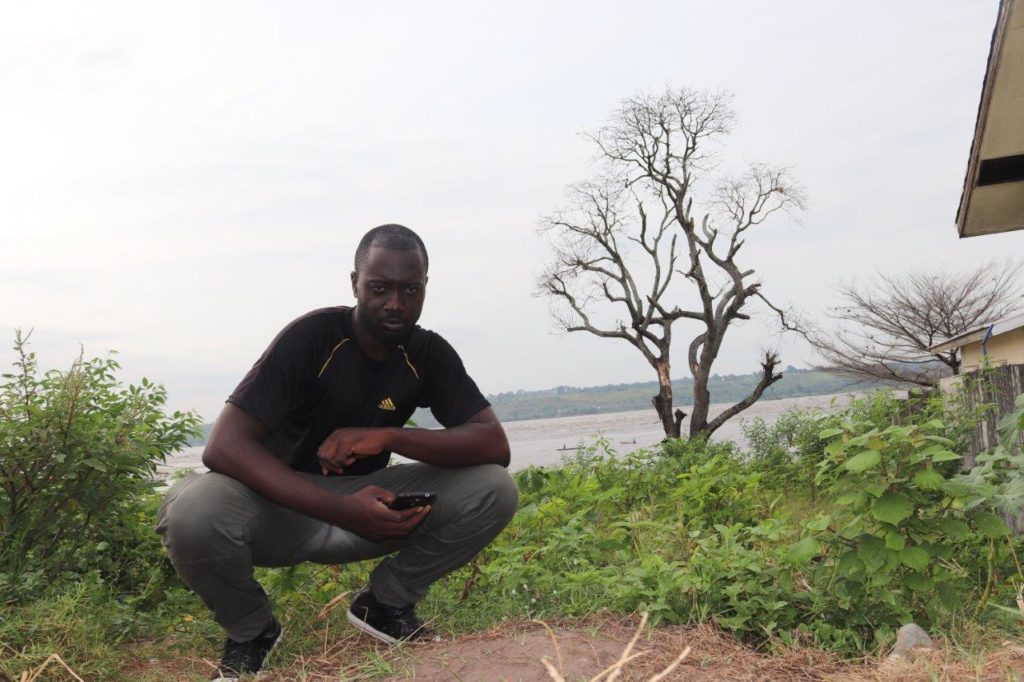
Pictures at the bank of River Congo 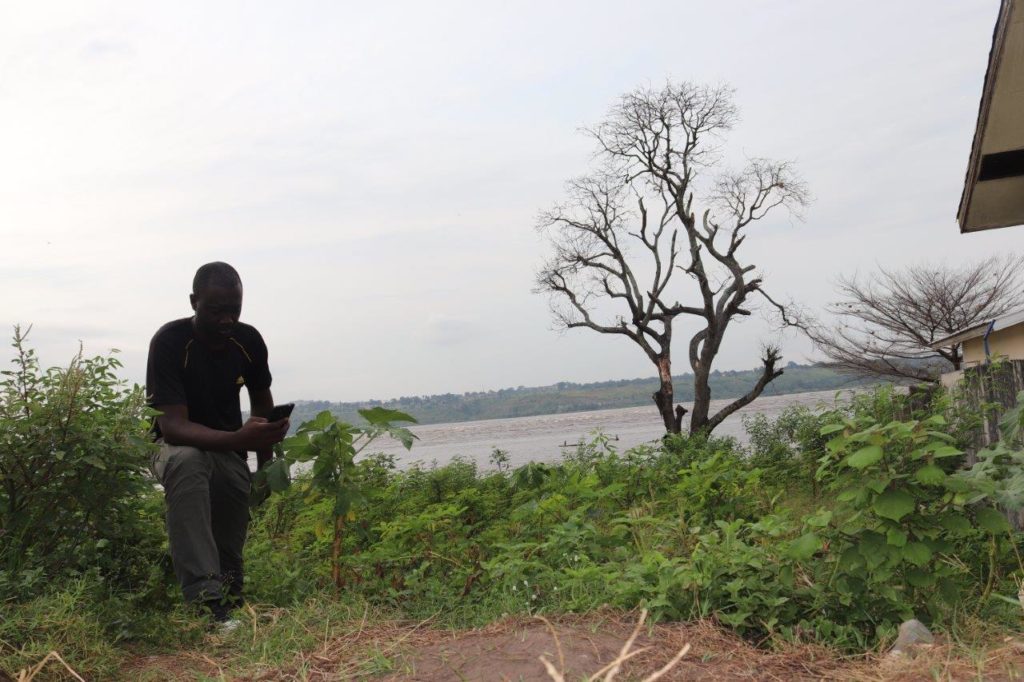
Pictures at the bank of River Congo
The next morning, I was to fly back to Lagos Nigeria via Cotonou in Benin Republic by 11 o’clock. I planned to visit the banks of the River Congo and a friend who helped me when I was processing my visa to visit the country. From my hotel to the bank of the River Congo costed me only 100 CFA in a bus. On arrival, I found a comfortable place to take a shot. While taking the pictures, a soldier from one of the building nearby which I later understood to be a military base approached me to advise me the area is a military facility and that I would desist from taking pictures of the buildings or structures around there – I explained to him I only wanted to get a shot of the River Congo because I’m a tourist. He allowed me and went away.
Hotel Scaimba
After taking a few pictures and reminiscing on some of the old stories and histories I had read about Congo, I decided it was time to leave to see my friend Backekolo Scaimba. He owns and manages Hotel Scaimba. He was very helpful when I was processing my visa to Brazzaville. The Congolese Embassy in Abuja required I must present a hotel reservation that is signed and stamped by a Hotel Manager in their country. Most of the hotels I contacted required that I should send a part payment before they send me the signed copy of the reservation but when I spoke to Scaimba, he gave it to me free of charge. He did this knowing fully well I could decide to stay elsewhere. I wanted to go to see him and thank him, despite the fact that I did not stay in his hotel.
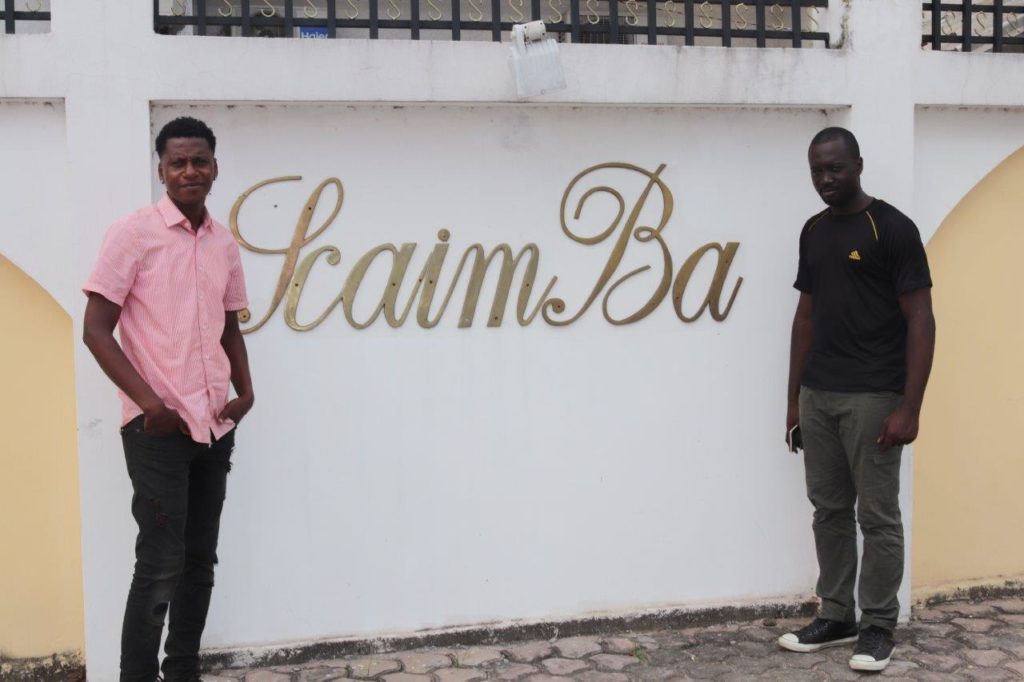
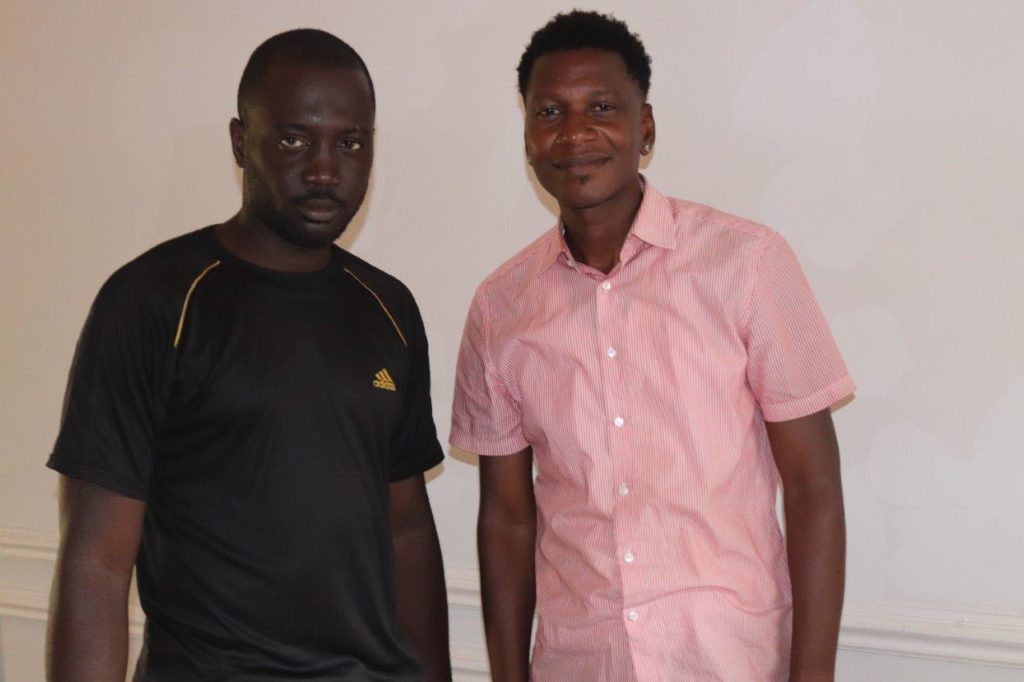
The Trip Back Home
On arrival to his hotel, he welcomed me very well, offered me coffee and told me a few things about the city. I promised to keep in touch. From there, I went straight to the airport and then checked in. Passing through the immigration checks, I was informed by the Customs that I would not be allowed to fly with a few of the local currency I had on me. After a few minutes of arguing, I had to go back to the check-in section to look for a way to change the money to West African CFA which I could spend in West Africa but unfortunately, they claimed the minimum amount they could change is from 20000 CFA meanwhile, I had around 3000 CFA and I was not willing to give it to the customs officers who had requested me earlier to give it to them. I explained to them I would be using the money to leave the airport when I arrive Cotonou and after several arguments, they allowed me go this time.
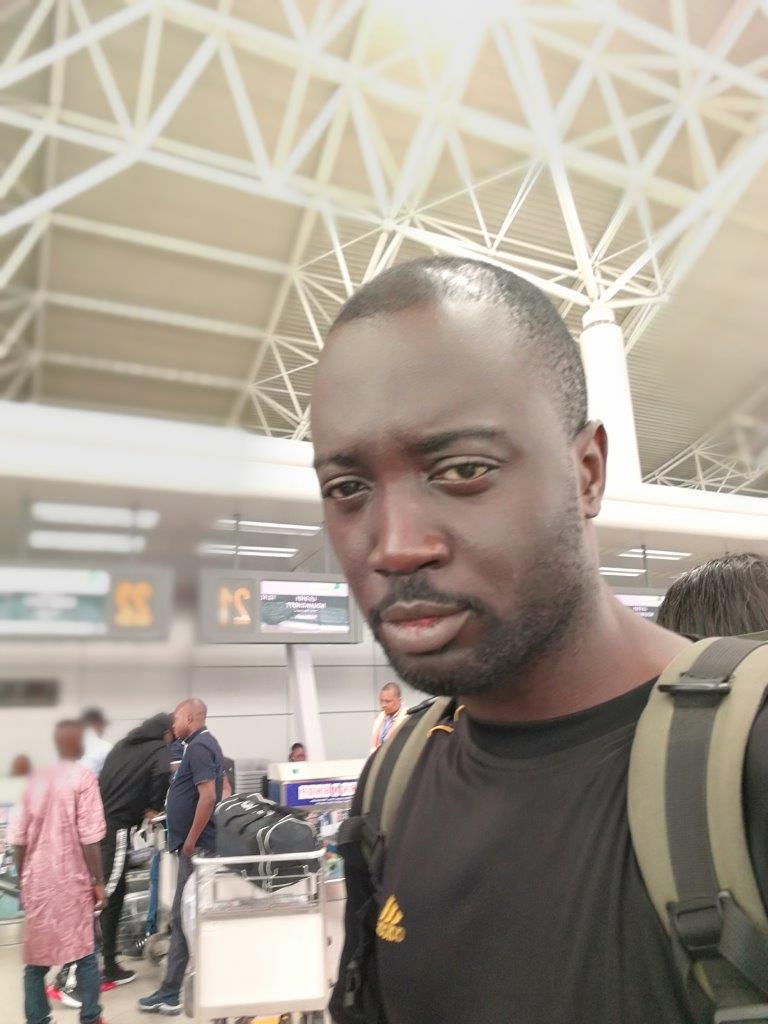
According to the Customs officers, I was forbidden to leave the country or any other region outside Central Africa with their currency. This instruction was boldly written on a banner they setup right in front of them. I had once flown from Chad to Nairobi, which entailed leaving the Central African region and no one talked to me about not leaving with my cash. I however learnt some countries as well does not allow visitors and non-residents to leave their country with their currencies. They either require them to change it to a foreign currency or spend it before leaving.
The boarded and left on a Mauritanian Airlines plane to Cotonou. With the only thing bothering being how to be able to finally get back to Lagos with the limited funds I had on me. God so kind, I got talking with the passenger next to me. He happened to be living at Porto Novo which was going to be on my way home. I requested to join him since he said someone is coming to drive him down to Porto Novo and he accepted.
On arrival, I had to change the remaining cash I had on me which was around 3000 XOF CFA to 2000 XAF CFA. This rate is a rip-off but I had no option. Let me also note that the currencies used in the West African francophone countries is different from the ones used in Central Africa and in most cases, the West African CFA has more value than the Central African CFA.
During our conversation, Ligali, this guy whom we sat together in the plane told me he is a FIFA graded referee and told me he comes to officiate matches in Lagos. He told me he would be in Nigeria to officiate a friendly match between Zimbabwe and Nigeria in preparation for the 2019 African Cup of Nations and he eventually did. On arrival at Porto Novo, he not only put me in a taxi to drive me down to the Igolo border but he also paid 1000 CFA for it – so, he technically paid for my entire transport and I ended up not even spending the money I changed.
On arrival to Nigeria, I was able to make withdrawals to continue my journey back home and from then, my mind was set to the next trip I would be making the next month to Brazil and Argentina.

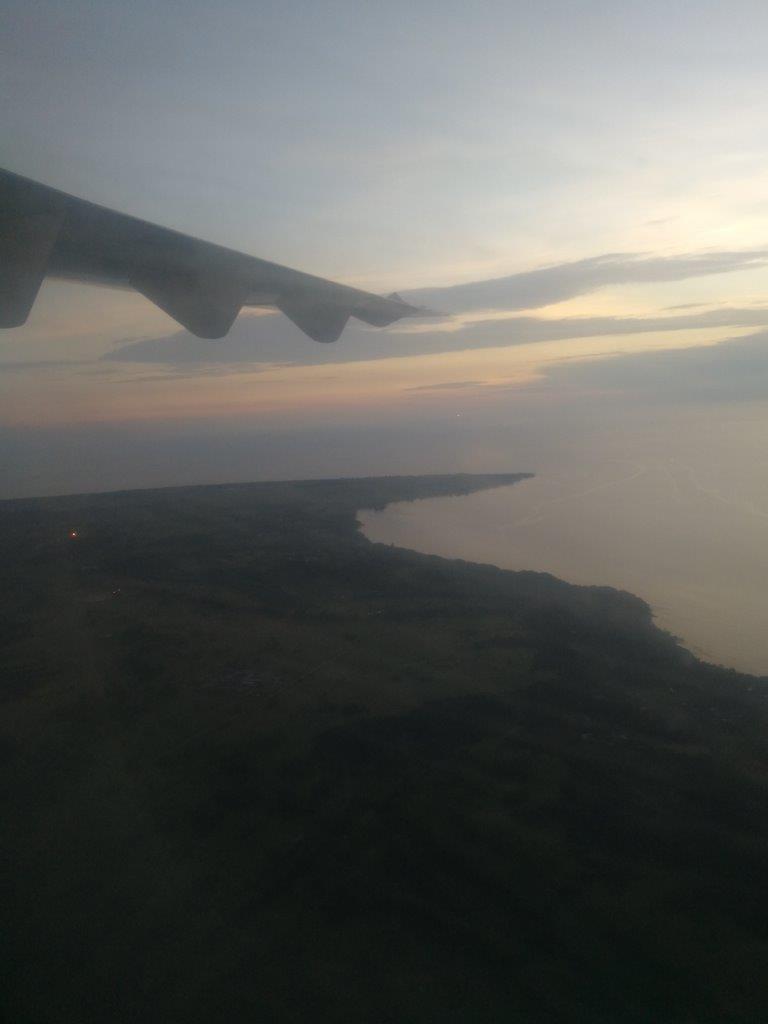
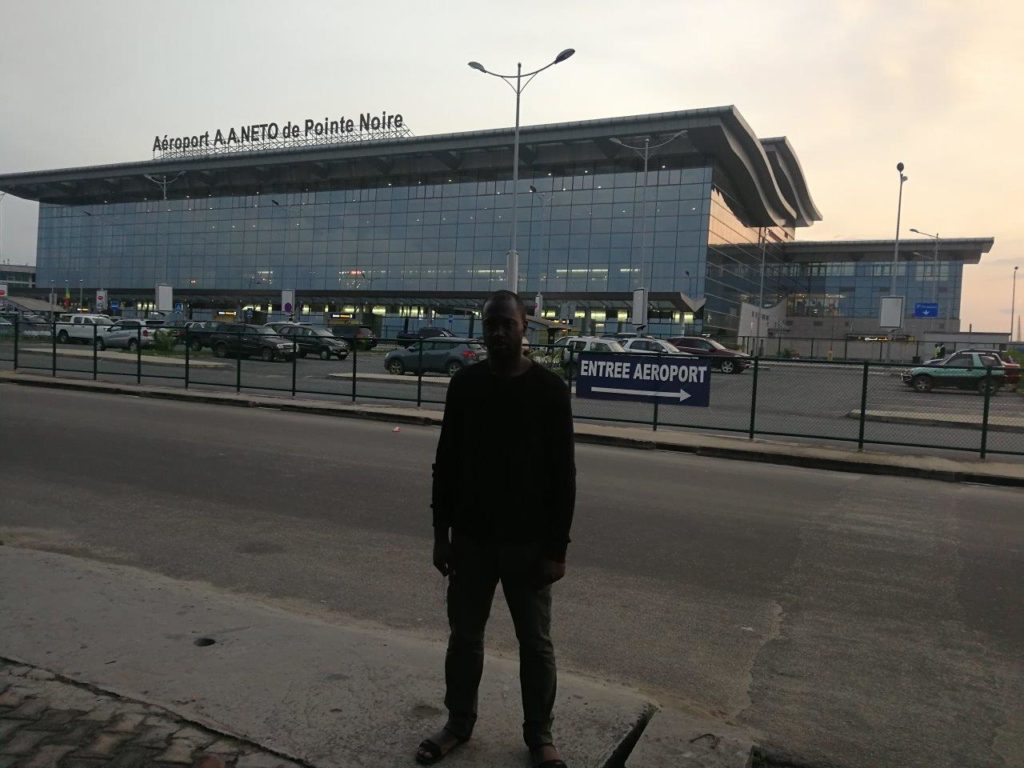
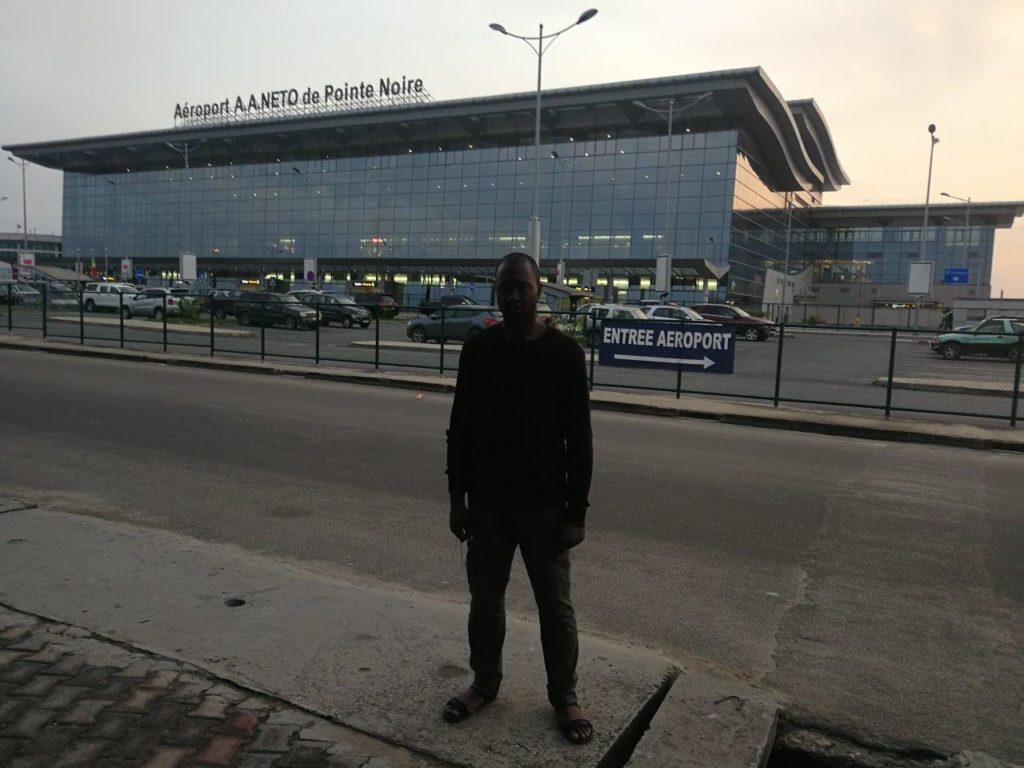
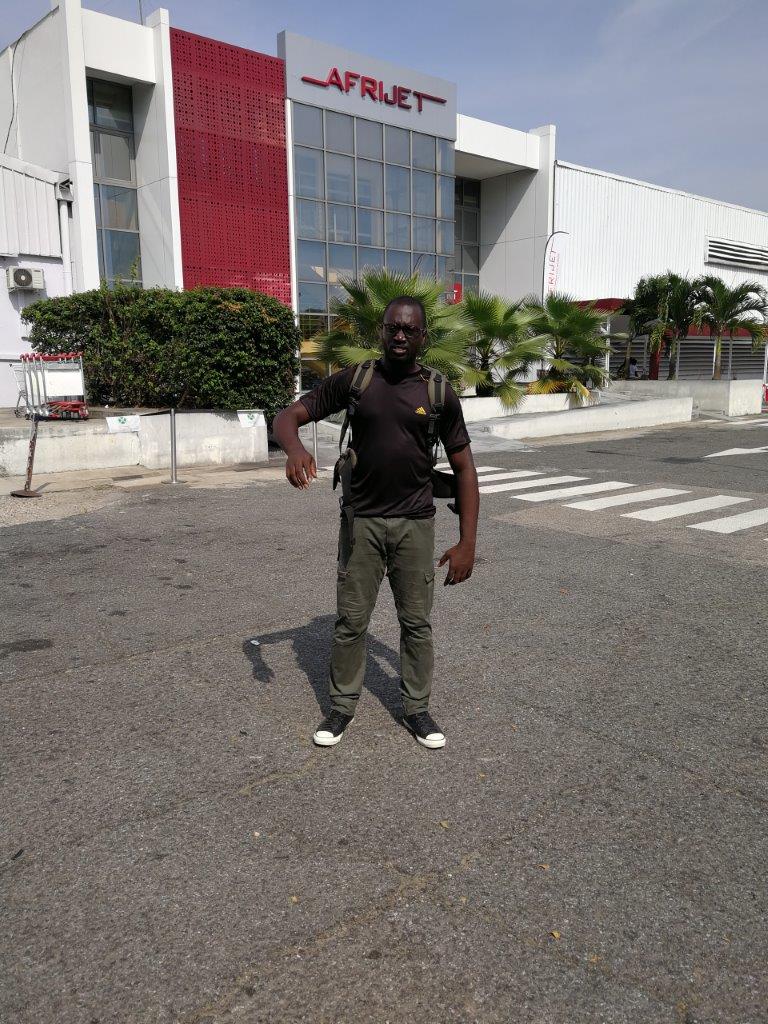
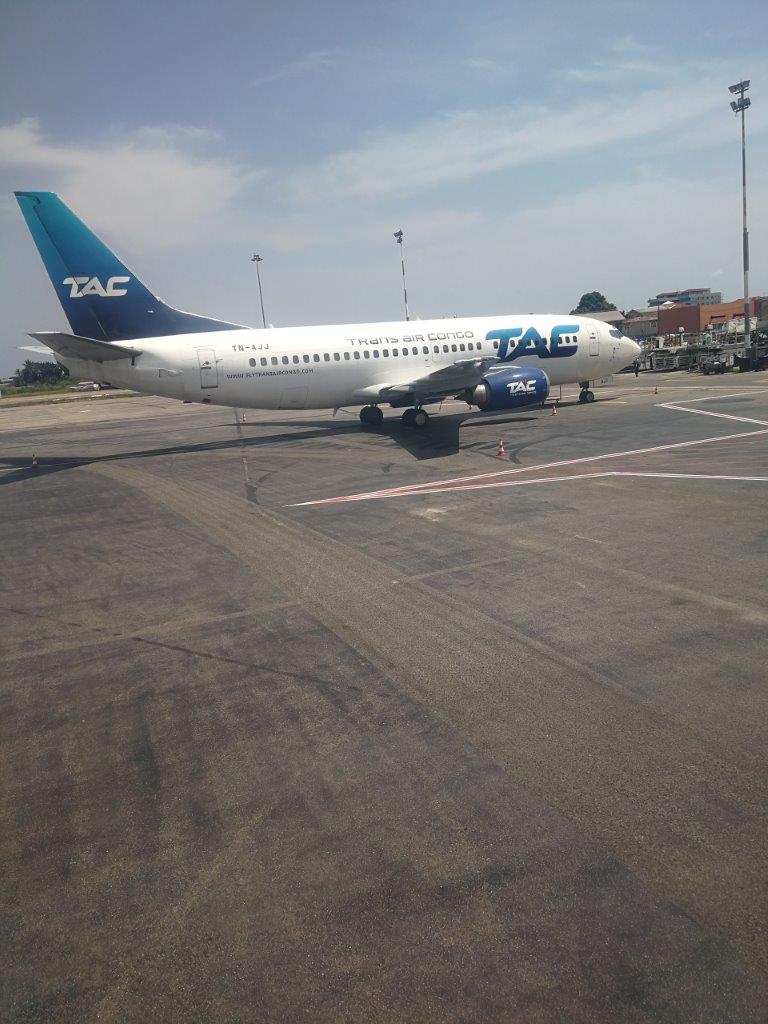
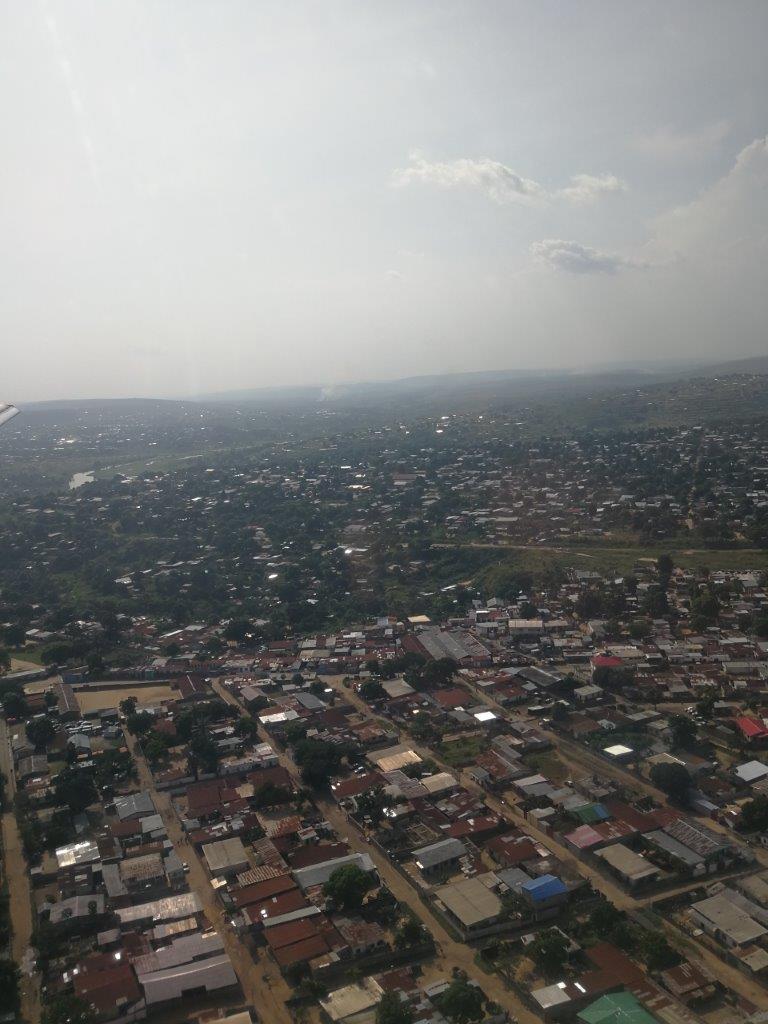
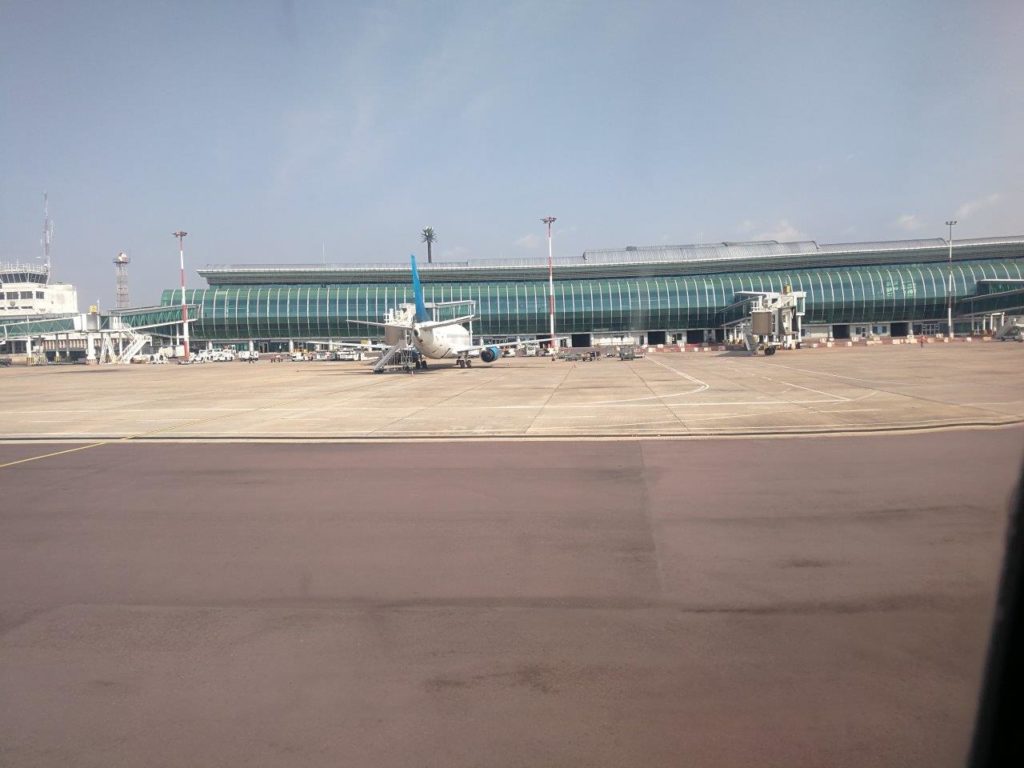
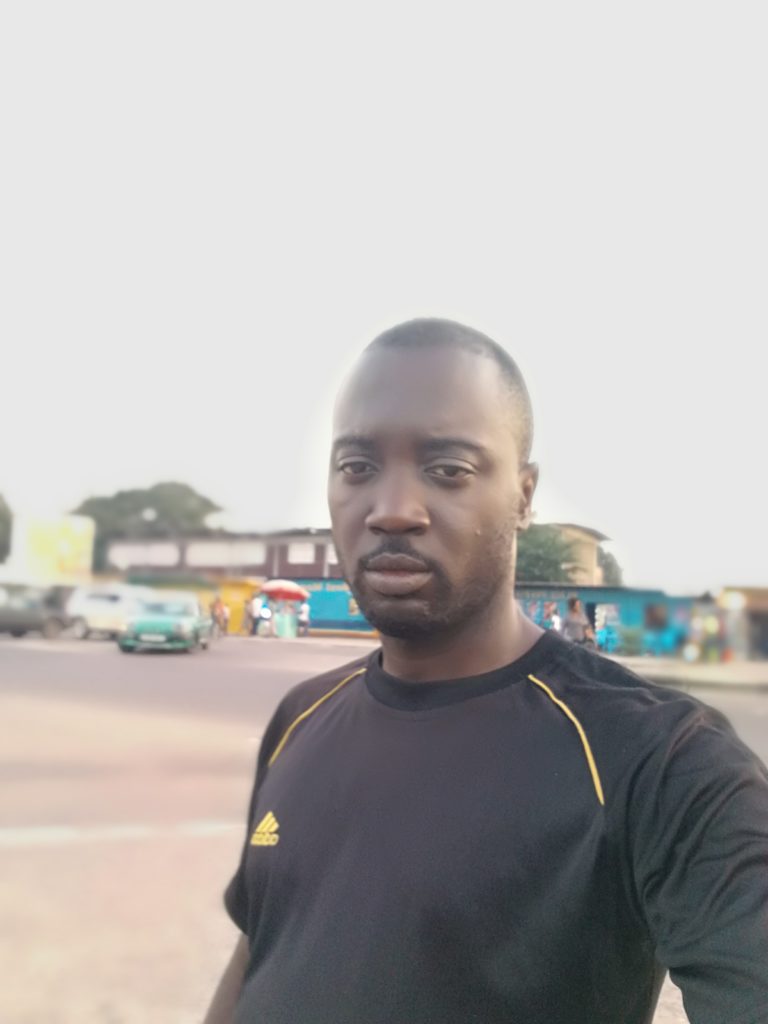
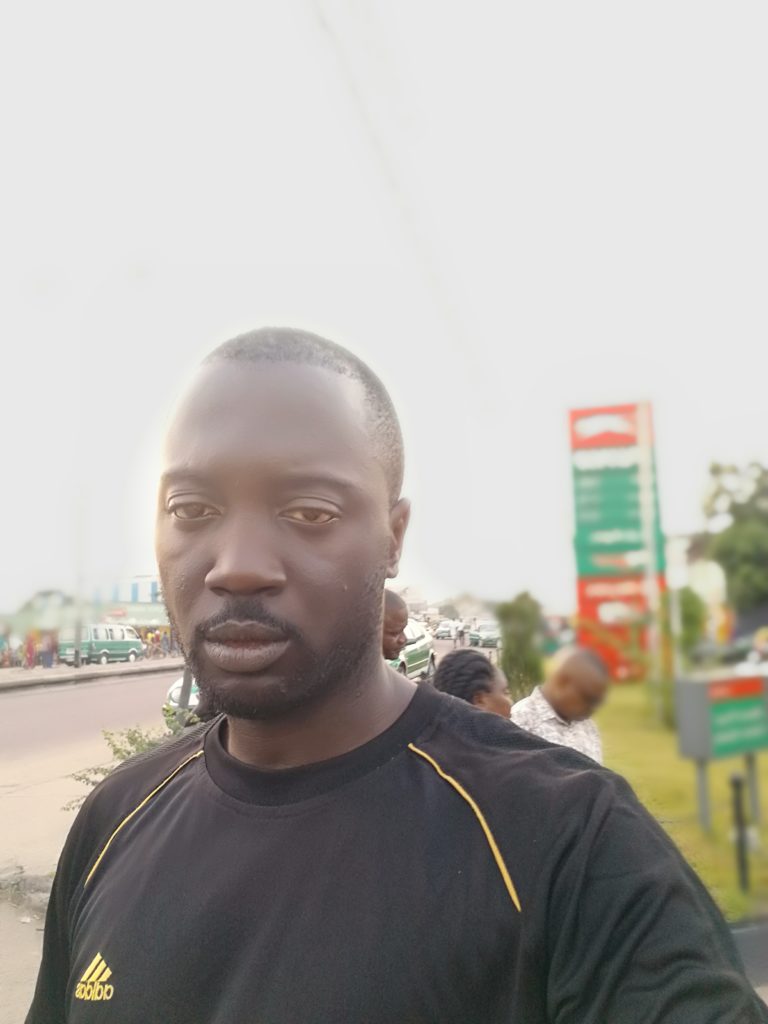
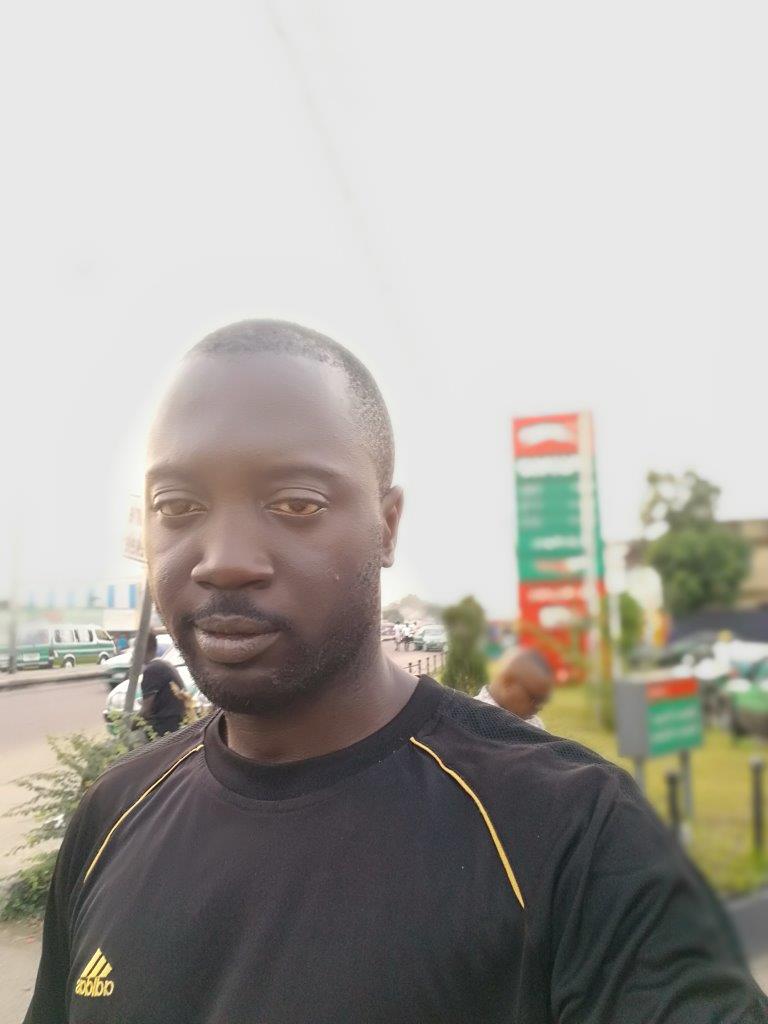
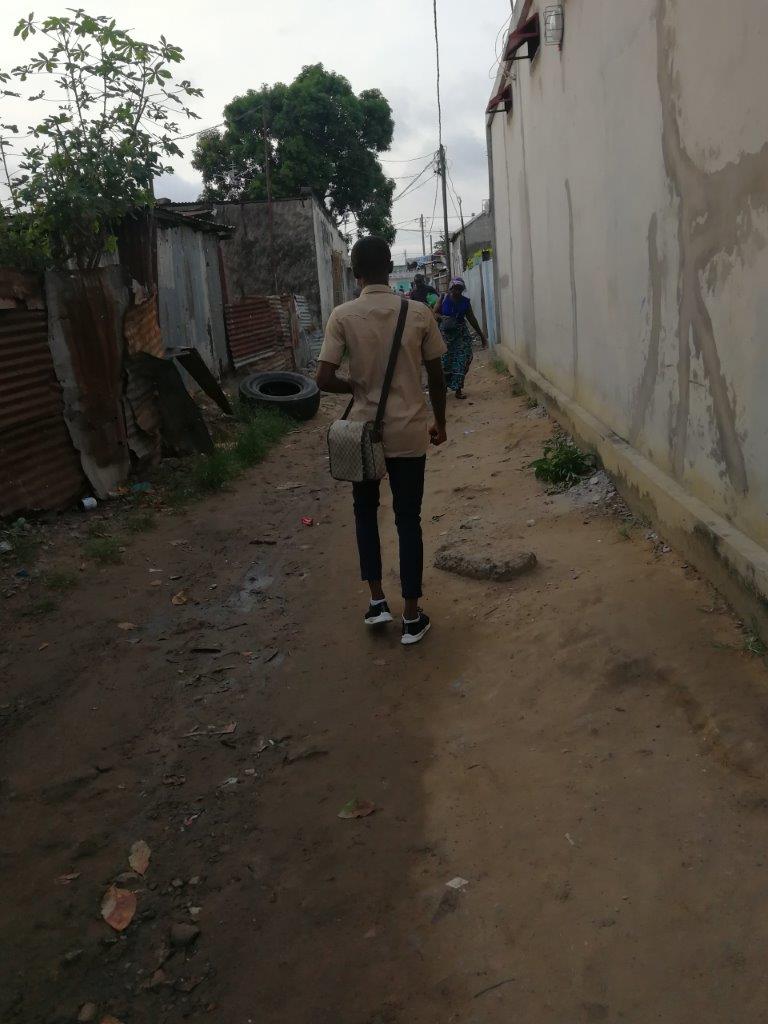
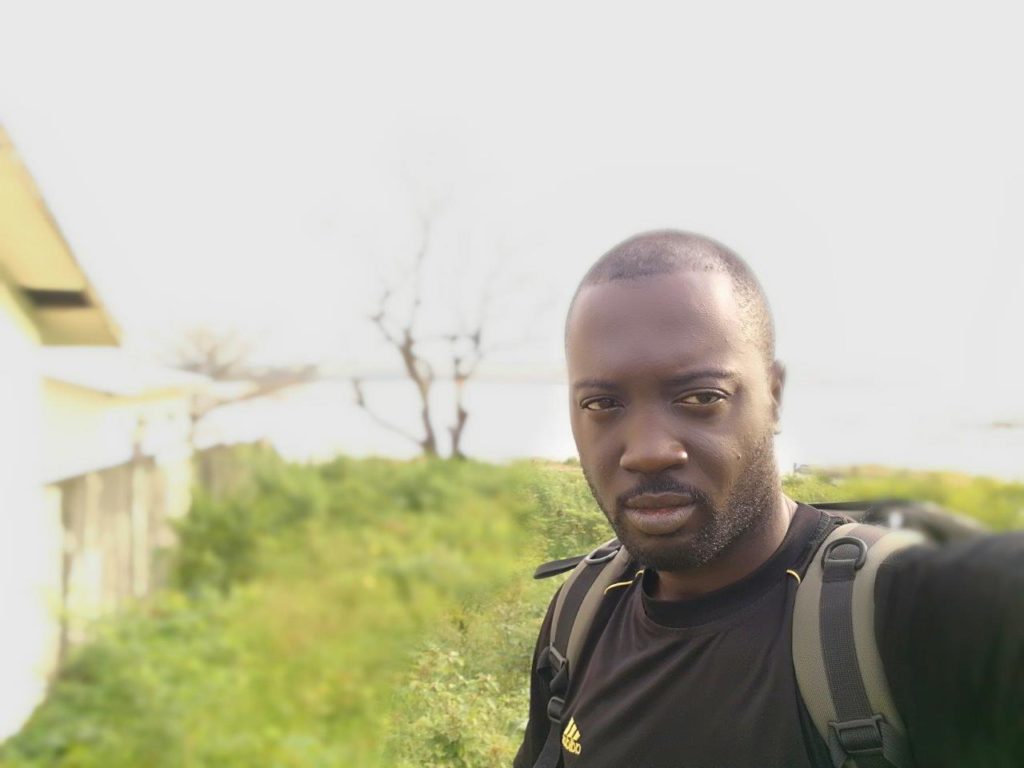
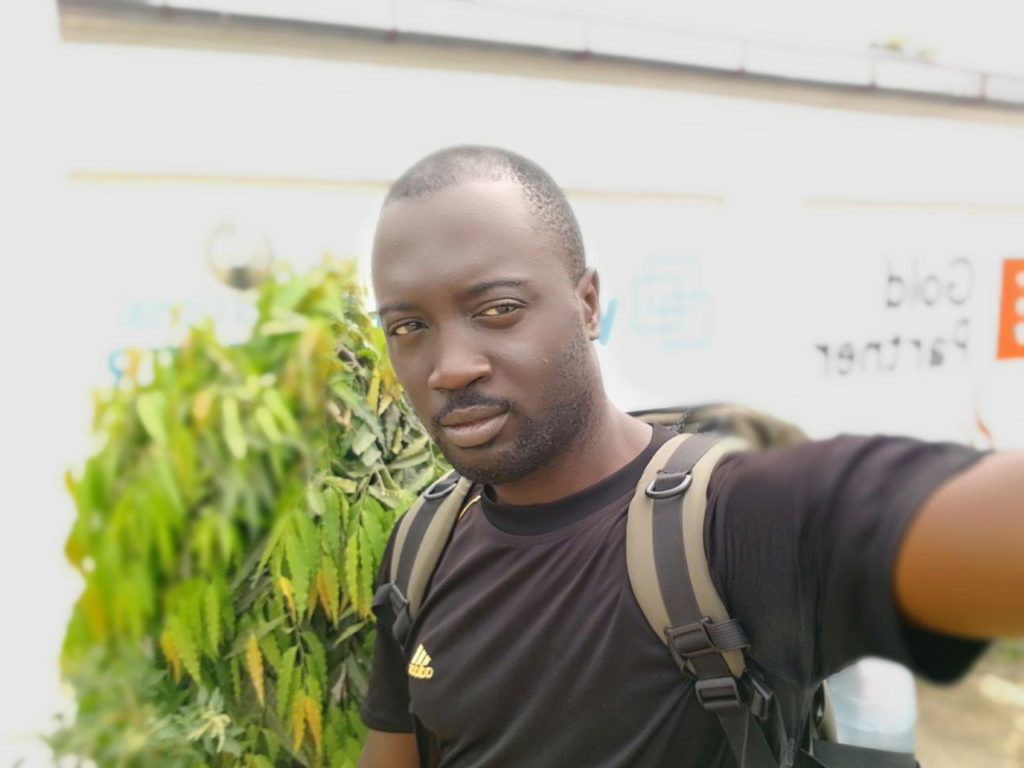
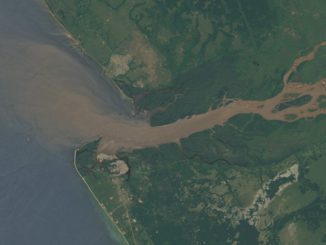
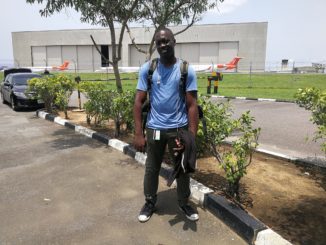
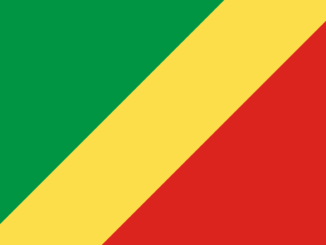
Be the first to comment